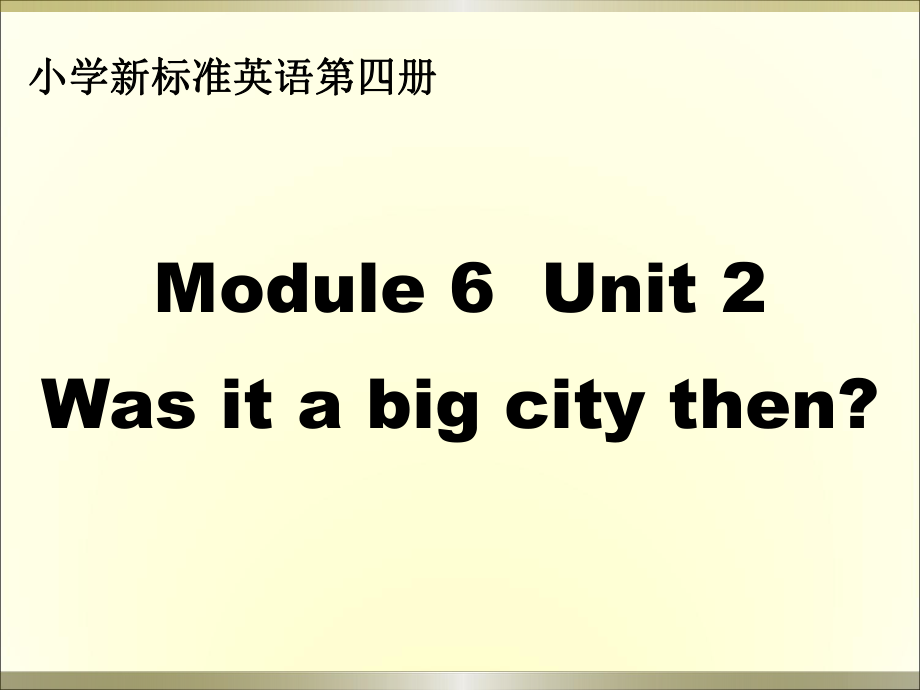《外研版(三年級(jí)起點(diǎn))四年級(jí)下冊(cè)Module 6Unit 2 Was it a big city then課件》由會(huì)員分享���,可在線閱讀�,更多相關(guān)《外研版(三年級(jí)起點(diǎn))四年級(jí)下冊(cè)Module 6Unit 2 Was it a big city then課件(8頁(yè)珍藏版)》請(qǐng)?jiān)谘b配圖網(wǎng)上搜索��。
Module 6 Unit 2 Was it a big city then?小學(xué)新標(biāo)準(zhǔn)英語(yǔ)第四冊(cè)小學(xué)新標(biāo)準(zhǔn)英語(yǔ)第四冊(cè)Lets sing a chantFat,fat,fat.I was fat.Thin,thin,thin.Now Im thin.Short,short,short.I was short.Tall,tall,tall.Now Im tall.大聲讀一讀tallshort bigsmalllongshort fatthin Oldnew youngold一般過去時(shí)構(gòu)成:Be動(dòng)詞的過去式(was/were)用法:表示過去某個(gè)時(shí)間發(fā)生的動(dòng)作或存在的狀態(tài)����。常用時(shí)間:then,yesterday等等動(dòng)詞be的變化am/iswas(單數(shù))arewere(復(fù)數(shù))含有be動(dòng)詞的句子(相應(yīng)句型變化只對(duì)was/were進(jìn)行)肯定句:I was at home yesterday.否定句:I wasnt at home yesterday.否定句:Were you at home yesterday?Yes,I was./No,I wasnt.Homework1.流利地讀懂課文。2.談?wù)勥^去跟現(xiàn)在的變化����。
 外研版(三年級(jí)起點(diǎn))四年級(jí)下冊(cè)Module 6Unit 2 Was it a big city then課件
外研版(三年級(jí)起點(diǎn))四年級(jí)下冊(cè)Module 6Unit 2 Was it a big city then課件

